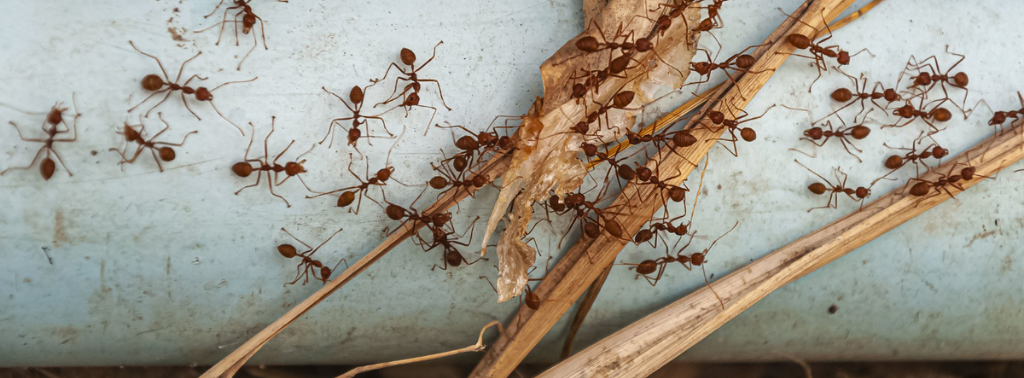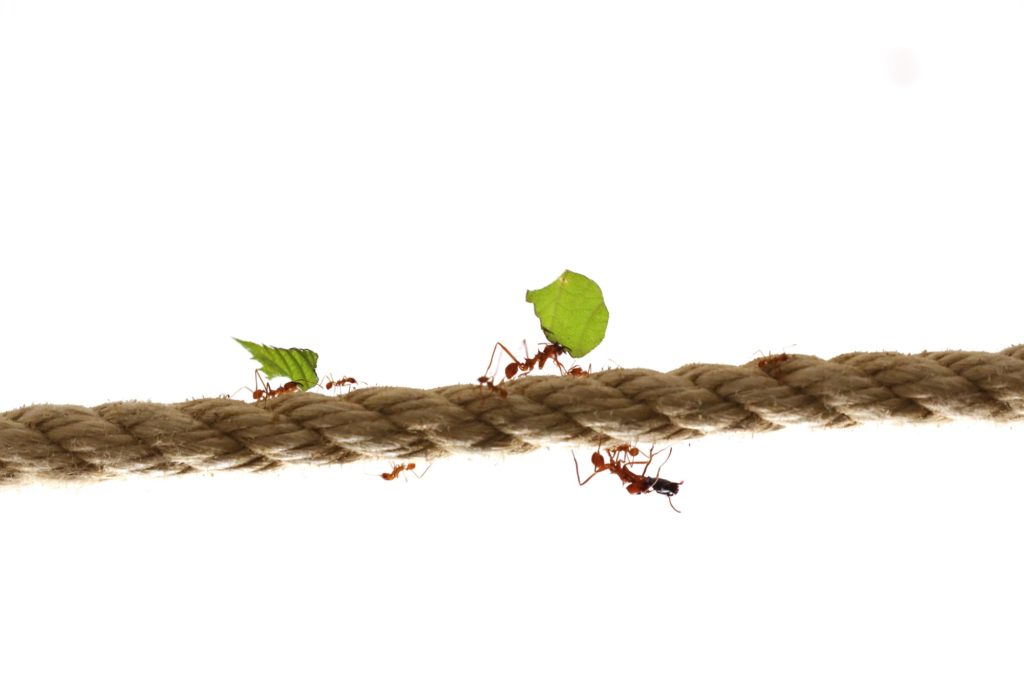Ants are among the most prevalent household or commercial pests. They find their way into homes or businesses through minute cracks and crevices in search of food and water. Even though you might never think that ants pose any danger, the tiny creatures carry bacteria that could be spread all around your surroundings. To stay in a clean and healthy space, you have to learn how ants transfer bacteria and what you would do about it.

How Ants Spread Bacteria
Ants find natural food sources. They move about in soil, decaying material, and trash. They carry many types of bacteria around on their bodies and legs as a result of this activity. When they get into your home, these same bacteria can transfer to your food, countertops, and other surfaces throughout your house.
Bacteria Carried by Ants
- Salmonella: Salmonella is a common bacteria that can cause food poisoning. Ants can pick up salmonella from contaminated food sources or waste and transfer it to your kitchen.
- E. coli: E. coli is another bacteria that ants can spread. Found in contaminated water and food, E. coli can lead to serious digestive issues if ingested.
- Staphylococcus: Staphylococcus bacteria can cause skin infections and other health problems. Ants that come into contact with infected materials can carry these bacteria into your home.
The Impact of Ant Infestations
An ant infestation can lead to health risks, particularly in food preparation areas. Ants can contaminate food, making it unsafe to eat. This is especially concerning in businesses where food safety is a priority. Commercial pest control in Reno can help manage these pests, reducing the risk of bacteria spread in commercial spaces.
Preventing Ant Bacteria Spread
- Seal Entry Points: To keep ants out of your home, seal any cracks or openings where they might enter. This reduces their access and minimizes the chance of them bringing in bacteria.
- Keep Surfaces Clean: Regularly clean kitchen counters, floors, and other surfaces to remove food particles and spills that attract ants. Use disinfectants to kill any bacteria that may be present.
- Proper Food Storage: Store food in airtight containers to prevent ants from accessing it. This helps keep your food safe from contamination.
- Professional Pest Control: Hiring professionals for ant control in Reno can effectively manage ant populations and reduce the risk of bacteria spread. Professionals can identify entry points and provide treatments that keep ants away.
The Role of Ants in Nature
Although ants can spread bacteria, their role in maintaining and acting out living functions in ecosystems is highly important. Ants help take part in the recycling of organic matter and act to transport dispersed seeds. The balance in these roles helps manage disease-free environments, yet this should be controlled when entering into human space as well as doing less harm to health.
Fortifying Your Home Against Ant-Driven Bacterial Risks
Small though they are, ants play an important role in spreading bacteria for health issues. The first way to prevent bacterial contamination is by understanding their behavior and how they carry the bacteria inside them. You can avoid the risk of bacterial contamination by taking precautionary measures, such as considering professional pest control services. Keeping your environment clean and safe from ants ensures a healthier space for everyone.
Protect your space from bacterial threats with Peak Pest Control. Our expert services ensure a clean, ant-free environment for your health and safety. Don’t wait for an infestation; contact Peak Pest Control today and safeguard your home or business now.


